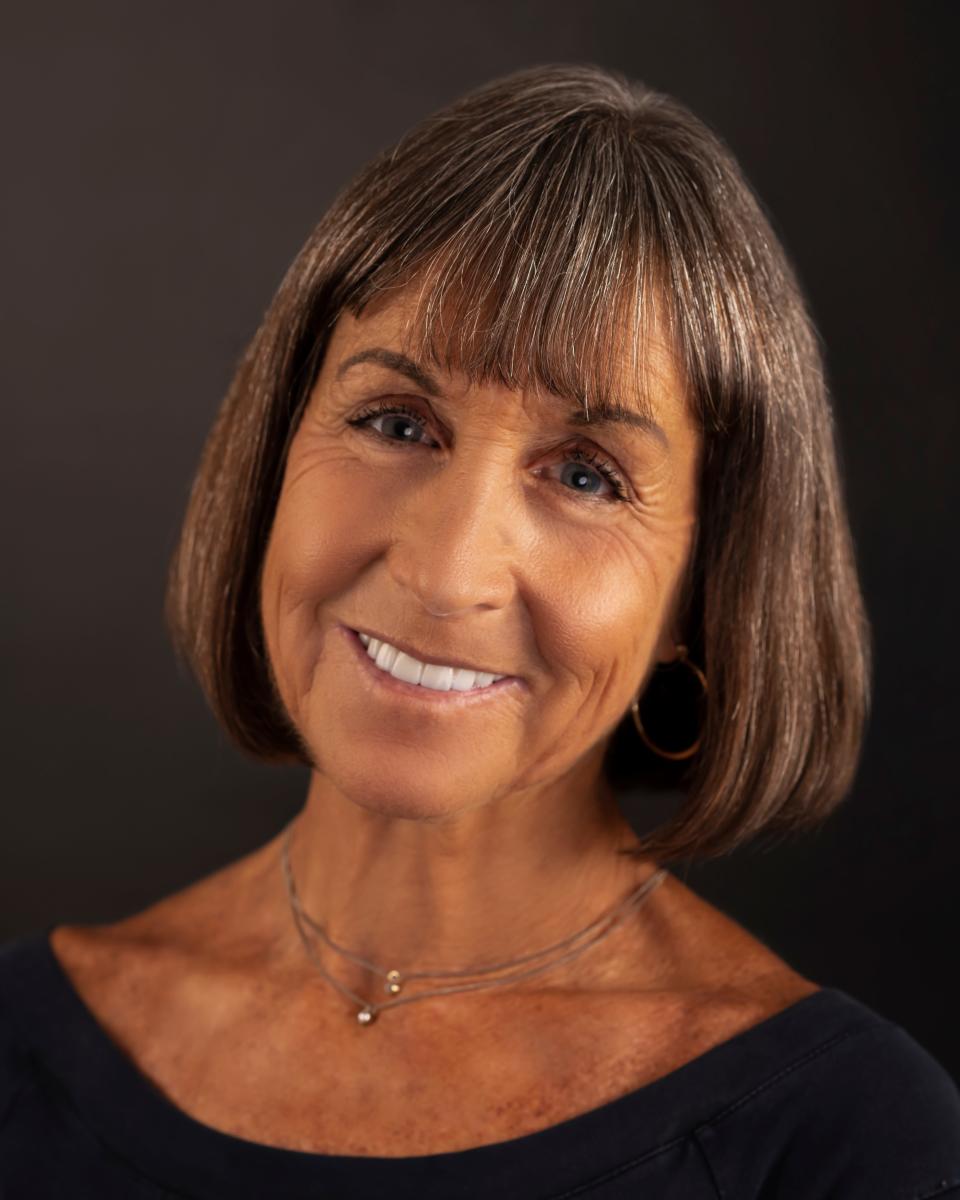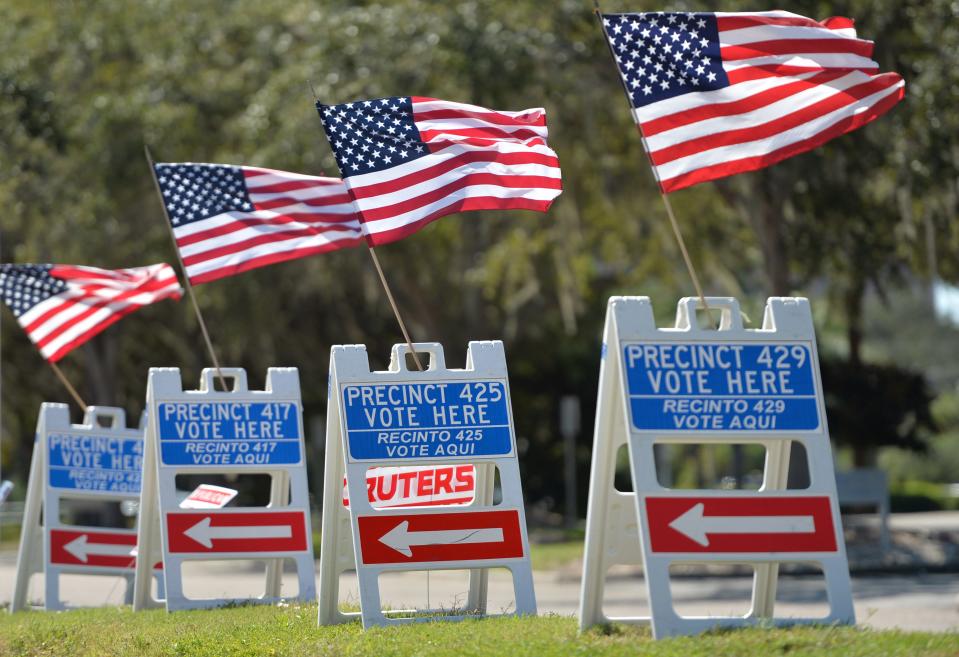Be prepared: 2024 will be a year like no other
The start of a new year is more artificial construct than actual promise of a clean slate. Just because we’ve turned the page on the calendar doesn’t mean anything has changed – least of all the political divisions that have only magnified since the last election.
By now, our adversarial stances are second nature, our positions and hearts hardened. And while passion is a plus, willful blindness is not.

Which is why the dawn of 2024 seems like a necessary call to action.
At no time in my life has an election year felt so critical and pivotal, the choices so oppositional and the potential outcomes so disparate. Many have said the very future of our democracy depends on this year’s election and I don’t think it’s overly dramatic to think so.
Yet many of us have distanced ourselves from civic responsibilities. We turn only to news sources that confirm our biases; we stop monitoring the news entirely because it’s “depressing” (it is); or we focus all our attention on the presidency when who gets elected locally is more likely to have an impact on our quality of life.
None of us are looking forward to the coming media oversaturation of presidential primaries, polls and promises. But now is a good time to begin researching and evaluating candidates for local office who will get much less attention (and in some cases, none).

More: The Zieglers face a 'come to Jesus' moment. Let's give them the space to experience it.
To that end, here’s a little quiz to assess your election readiness.
Obviously, you can find the answers on Google, but that’s not the point. If you’re honest, it should give you some idea of what you know and what you need to learn (and where to find answers) before you’re faced with that big blank ballot in November.
1. How many days before a primary or election do I need to be registered?
2. Can I vote in the primaries if I am registered as an Independent?
3. When is the presidential primary in Florida and what influence does it have?
4. Why is it important for me to vote in the August primary, regardless of my party affiliation?
5. What offices are up for election locally in 2024?
6. How many seats are up for Sarasota County Hospital Board and why do they matter?
7. What do members of the Charter Review Board do?
8. Where can I find information on local candidates and their positions?
9. How can I research who has donated money to a local candidate’s campaign?
ANSWERS:
1. Thirty days. Which means Feb. 20 for the March 19 presidential primary; July 22 for the Aug. 20 state and local primary election; and Oct. 7 for the Nov. 5 general election. If you previously signed up for mail-in balloting, new rules say you must reconfirm that choice every two years, so check with the Supervisor of Elections’ office to make sure you’re still registered.
2. In Florida, only registered party members can vote in a political party’s primary election. However, in some primaries (for example, the Aug. 20 primary) there are races open to all voters, such as judgeships, school board races and any nonpartisan offices. If you are not registered with a party, you can still vote but your ballot will only include nonpartisan races.
3. Voters registered with Florida’s two major political parties are eligible to express their preference for president March 19. Subsequently, designated party delegates formally nominate the state’s preferred candidate at the party’s national convention, typically in July or August.
4. Because there are nonpartisan (even if in name only) races in that primary that are open to any voter and could be the final vote for those positions. For example, unless a run-off is necessary (because of multiple candidates), the Aug. 20 primary could be the final election for Sarasota County School Board seats. And unless you’ve been living under a rock, you know how important that vote is.
5. Go the Sarasota County Supervisor of Elections website (www.sarasotavotes.gov), click on the “Election Information” tab and select “Offices Up for Election” in the drop down box. You’ll find a list of every office to be decided from president to Sarasota Soil & Water Conservation District seats.
6. Four, one for the central district and three at large seats. If you’ve been following the news about the “medical freedom” movement, you know who fills these seats could determine Sarasota Memorial Hospital’s future status. The new nonpartisan, grassroots group, Citizens for Healthcare Excellence, is a good source for information.
7. The Charter Review Board examines the county’s charter, which lays out rules on such things as the organization of government and land-use and voting requirements. Its proposed changes and recommendations are then subject to a voter referendum. There are seats up in all five districts this year.
8. There is no single place to find all the information you might want or need. Potential sources include: the League of Women Voters’ guide; local news publications; watchdog groups like Sarasota’s CityPac; and candidate forums that will be hosted by the LWV, the CCNA (Coalition of City Neighborhood Associations), Tiger Bay and other community organizations throughout the year. Of course, local Democratic and Republican party offices have information on their own party candidates. Following the “Citizens for Sarasota County” page on Facebook can also provide insider information.
9. Finance reports for candidates can be found on the Sarasota Supervisor of Elections website under “Local Candidate, Committee and Party Reports,” which identifies candidates’ donors and contributions. The city of Sarasota keeps campaign finance records on city candidates. You can also go to the National Institute on Money in Politics tracker at followthemoney.org. or the Florida Division of Elections website (for statewide candidates). For a deeper dive into the “dark money” Sarasota County candidates receive from PACS (political action committees) with special interests, follow Cathy Antunes’ blog at thedetail.net.
SCORING: Give yourself one point for every question you knew the answer to (without cheating).
8-10: Congratulations. You take your voting responsibility seriously. But many things can change in the months leading up to an election, so stay attentive and engaged.
5-7: You’re not checked out, but you don’t look far past your regular news sources for candidate information. Push yourself to do a little more research and preparation in order to make choices based on solid research this fall.
0-4: Here’s the good news; you are a fresh slate. Make a vow now to take your civic responsibility more seriously this year. Our community’s future depends on it.
Contact Carrie Seidman at carrie.seidman@gmail.com or 505-238-0392.
This article originally appeared on Sarasota Herald-Tribune: 2024 will be a year like no other

